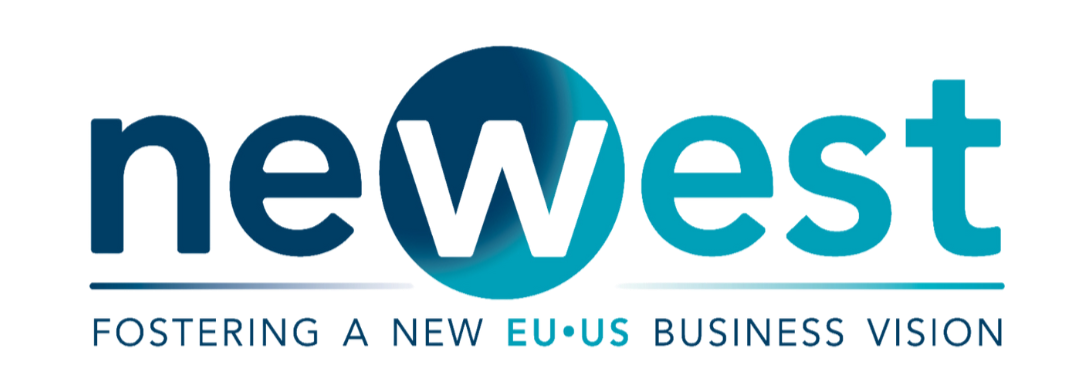
IRG
IRG for a Changing World. How to Survive & Thrive Beyond ESG.
The Influence, Relevance, and Growth methodology comprises 10 quantitative parameters that evaluate a business's Influence, Relevance, and capacity to foster economic Growth. This is achieved by consistently delivering industry information and insights to policymakers and stakeholders.
-min.png)
INFLUENCE, RELEVANCE AND GROWTH FOR A CHANGING WORLD
HOW TO SURVIVE & THRIVE WITH IRG™ BEYOND ESG
Governments struggle to respond to the needs of the people. The media have lost their traditional equidistance. The public trusts corporations the most putting pressure on them to proactively engage. The Influence, Relevance & Growth (IRG) 10 quantitative parameters offers corporations a new operating model to adapt to a societal context in which policymakers need to be continuously and deeply informed about complex, technologically intensive, and ethically charged issues. This book is designed to help CEOs and top management align companies and prepare business students for a more realistic perspective of society and how the corporate world can compensate for the overshadowing primacy of politics.
Influence
The corporation has the gravitas, and the strength to suggest and to shape policy through status, contacts, and competences. If so, it is capable of creating consensus around its key strategic charters
Relevance
The corporation is perceived as being closely connected to priorities and having an appropriate understanding of those matters
Growth
By attending to its influence and relevance, the corporation protects shareholders’ value and its long-term vitality. It becomes a sought-after, visible constituent for industry content, relevant to policymakers in safeguarding and stimulating economic growth and the well-being of society
10 Parameters Assess the “Influence”, “Relevance” and fitness to contribute to economic “Growth” of a Company
Guidelines: The index assesses each parameter: 1 Min – 3 Max, the perfect score is 30.
81%
CEOs should be personally visible
when discussing public policy with external
stakeholders or work their company has done
to benefit society
(Edelman Trust Barometer)
76%
on jobs and economy, CEOs expected to inform policy not politics.
Technology & Automation - 74%
Income inequality - 68%
Immigration and impacts on jobs - 61%
56%
believe that capitalism today does more harm than good in the world.
Background
We live in a world characterized by an imbalance among key democratic constituencies: governments, corporations, media and Non-Government Organizations (NGOs). Among these four pillars, the public impression of competence and influence, and the respect it engenders, has tilted in favor of corporations. The Influence Relevance and Growth system (IRG) offers insight and a methodology for corporations to manage that complexity and change. The IRG proposes 10 measurable metrics and actions to support companies in aligning and supporting policymakers, in managing new stakeholders’ expectations and in continuing to generate economic growth while protecting shareholders’ value.
Companies have created unprecedented wealth, designed sophisticated technology and intensive global value chains, largely monopolizing the pool of available talents. The public sector, in contrast, has remained at the margins of these processes, understanding and know-how, and with limited talents. Cold-called in when crisis erupted, it has revealed itself to be ill-equipped to manage such complex and yet global problems.
There is wide consensus that business is best at generating value for owners, being both an engine of innovation and driving economic prosperity. Nevertheless, companies are still feverishly trying to provide answers to stakeholders by intensifying corporate social responsibility and, as of late, by aiming to be “sustainable”.
While these practices are commendable and should continue, they fall short of providing the leadership and answers highlighted earlier.
Against this background, the IRG provides a holistic, quantitative and measurable methodology to help CEOs and corporations align to the changed societal context and become influential in order to inspire and cooperate with policy makers to ensure concrete answers, better understanding of industrial challenges, opportunities for job creation, and a more inclusive economic growth.

FROM
An époque
of changes
TO
A change
of époque
1. Company Governance
assesses the effectiveness of governance and management practices, the qualifications and suitability of board members in supporting the mission, the organizational structure, and the evaluation processes in place, as well as the challenges encountered.
2. Industry Leadership
measures the impact of the company within its own sector(s).
3. Financial Influence
measures the financial strength of the enterprise
4. Industry Power
assesses the Corporation's ability to influence the terms of debate both domestically and regionally, as well as globally, extending beyond its own sector and adjacent fields.
5. Innovation Excellence
focuses on the role of the company as a global innovator within the industry.
6. World Citizenship
measures the company’s actions, presence, leadership in key national and international fora; addressing globally/regionally/ locally innovative themes for societal/industry well-being; becoming a thought-leader and sought after partner/advisor.
7. Media Strength
assesses the ability to effectively communicate the 2 or 3 key themes that contribute to societal well-being. This includes addressing industry challenges and opportunities, engaging stakeholders, and promoting a vision of global citizenship in a statesmanlike manner. It also involves being recognized as a competent advisor capable of addressing pressing issues. Notably, this measure excludes commercial and financial communications
8. Thought Leadership
the company’s ability to contribute to industry / managerial development with cutting edge best practices and opinions, and to make them known to external constituencies. It creates the means/media to share its vision and know-how with stakeholders and especially with policymakers.
9. Social Responsibility / Diversity / Sustainability
the organization's plans and approach in supporting these themes internally (workplace) and externally.
10. Human Capital
measures the attractiveness of the organization as a workplace/employer and its effort in supporting employees' professional growth, in attracting talents, and responding to emerging new needs.

